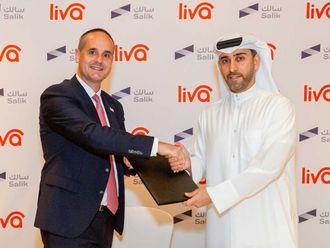On a cold, dark morning in London when the 7.45am train is delayed because of snow in London or perhaps when there is an accident on Shaikh Zayed Road in Dubai, the idea of remote working may well seem a very attractive choice to both employer and employee.
For the employer, avoiding the expense of a large central office for employees who don’t have to be physically present is attractive, and for the employee there is the lure of getting up in the morning, having no commuting time and being able to get straight on with working with no stress or hassle from an early morning traffic jam.
Of course, technology today means that it is possible for business owners to work effectively from any physical location, but there are certainly more factors that need to be also taken into consideration when making a decision as important as this one for key employees.
Last week, in was reported that Marissa Mayer, the CEO of Yahoo, based in California, has decided that she in not keen on remote working for her employees and wants them in future to work from the company’s offices. Last July, she was heard saying that she wanted Yahoo to be the ‘absolute best place to work and have a fantastic culture’ as she introduced many incentive drives.
However, Richard Branson CEO of Virgin, commented saying that he thought that this seemed a backward step in an age when remote working is easier and more effective than ever.
And so the debate continues and you may come down on one side or the other and I personally can see advantages and disadvantages on both sides. However, I wonder, like Marissa, if remote working really is a good idea. I do appreciate that business is no longer 9 – 5, flexible working is with us to stay and technology can provide the instant access to keep in touch. So let me highlight some of the advantages and disadvantages and then you can make up your mind yourself:
Advantages
No travelling time: Commuting to work can be a significant cost for employees and costly expenses such as buying a car can be avoided. Eliminating the commute also means that the worker can be productive during the time when they would normally be travelling. Telecommuting can also enable employees to attend meeting without physically having to travel to different offices of location.
Costs: Cost savings on rental of office space, electricity, air-conditioning, heating and equipment costs can be reduced.
Flexibility: Telecommuting can be beneficial to employees by offering increased flexibility. Flexible remote working means that employees can set their own hours and breaks, whenever they need to, provided all the required work is completed. In general, staff are happier in being more able to control their work-life balance because of greater flexibility.
Disadvantages
No face to face time. Those who enjoy social interaction with their co-workers would lose this aspect. No coffee machine chats and interactive conversation time when walking down the corridor. Of course, technology can provide instant access at just the click of the button but that in itself can be also be a problem.
Long Hours: We can be contactable 24 hours per day and if we have don’t have the self-discipline NOT look at our emails every minute, then we are continually on ‘duty’. And even if you do have this discipline, it could be that your boss requires to contact you at any hour, so there can be a challenge here.
Distractions: Not an easy one for everybody. You may have to deal with friends who drop in for a chat, house repairs, children or domestic items that need to be attended to, so one has to be very strict with oneself and for those around you.
So which side do I come down on? Whereas I totally back Marissa Mayer’s point of view on interpersonal skills communication and feeling part of a community, nevertheless, I can see that with some businesses, Richard Branson is right that we have the tools to do the job from a remote location which may not be Necker island but we could be highly efficient from our home in Sharjah or elsewhere.
For myself, I can really see both sides. What do you think?
The author is a BBC Guest-Broadcaster and Motivational Speaker. She is CEO of an international Stress Management consultancy and her new book, ‘Show Stress Who’s Boss!’ is available in all good bookshops.












